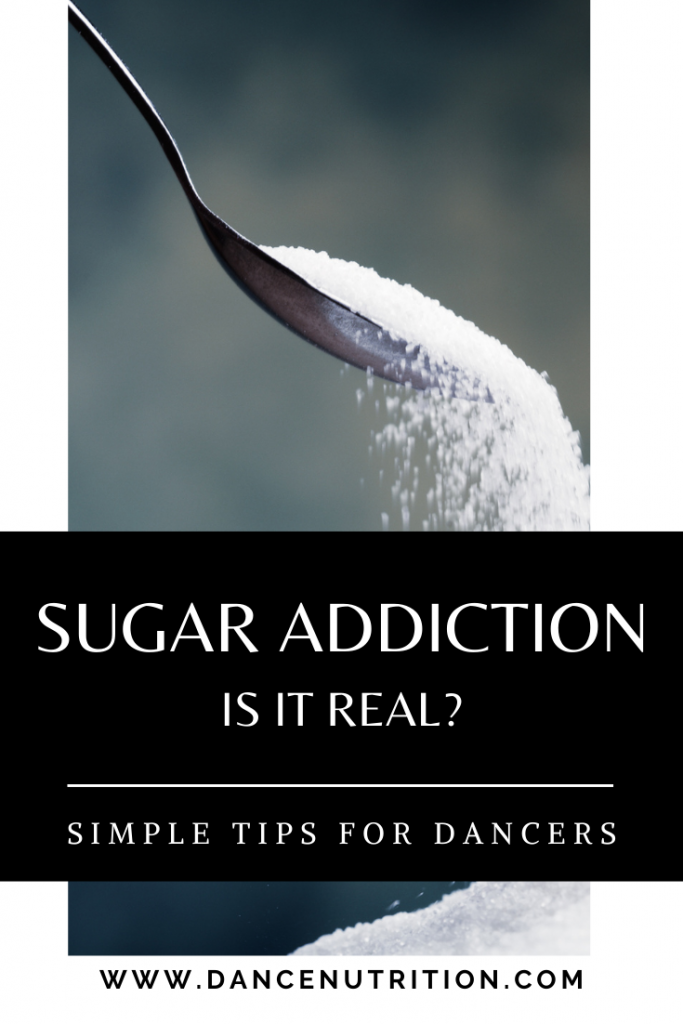While the concept of food addiction resonates with many, it’s a complex and contentious topic. The science surrounding food and behavior is multifaceted, so understanding it is essential to building a more informed relationship with food.
In this blog post, we’ll explore the myths surrounding food addiction, examine the scientific evidence, and offer a more nuanced understanding of eating behaviors. We’ll also discuss what it means to feel obsessed with food— why food obsession happens and how to build a more supportive relationship with food.
What Is Food Addiction?
Food addiction is often described as an uncontrollable craving for certain types of food— the struggle of “once I start, I’ll never stop!” These cravings usually come alongside feeling out of control or compulsive when eating a specific food. Advocates of the food addiction model suggest that these cravings are similar to substance abuse, where individuals may binge despite uncomfortable consequences.
Food Addiction: Understanding The Research
Proponents argue that certain foods trigger brain reward pathways, leading to cravings and compulsive behaviors akin to drug addiction. To enforce the matter, research has shown that highly palatable foods activate the brain’s reward centers, similar to drug use. However, this neurological response doesn’t necessarily depict addiction, and to date, no solid evidence shows food as having a comparable pharmacological effect on the brain.
Research Limitations
Food addiction research remains in its infancy, with studies on humans largely inconclusive. Whatever research is out there is limited for several reasons:
1) There’s no formal terminology
While we can generally describe food addiction as compulsive eating, there is no formalized definition for the term. This makes it difficult to compare research let alone build a consensus. For example, when describing food addiction, are we talking about a specific nutrient like sucrose (sugar) or a certain group of foods (like dessert)? This is just one of the many reasons why nutrition research gets sticky. Here’s an article detailing what you should consider when comprehending nutrition research.
Some studies have attempted to define a “food addiction scale,” but many experts argue that the criteria used are overly broad, leading to unreliable results more strongly demonstrative of food restriction (not food addiction).
2) It doesn’t reflect human behavior
Another common belief is that specific foods, particularly those high in sugar and fat, are inherently addictive. This perspective implies that the mere presence of these ingredients can lead to uncontrollable cravings. One popular study drew associations between sugar and addictive behaviors on rats.
While such research can spark interest, a study done on rats cannot conclude in a manner that translates to humans. Translating this into a blanket statement like “sugar is addictive” is a mere media scare tactic, increasing consumer vulnerability to extremely restrictive eating behaviors (more on this below). Bottom line: sugar addiction rhetoric is misleading and unhelpful.
3) Confounding Variables
In research, a confounding variable is an external factor that can influence results. In the study mentioned above, the researchers failed to acknowledge the rats’ “addictive-like” behaviors followed by intermittent access to sugar. In other words, limited access to a sugary feed resulted in the rats exhibiting binge-like behaviors. On the contrary, the rats that had unlimited access to a sugary feed did not exhibit any addictive-like behaviors.
Consider this: over 75% of women have some degree of disordered eating or eating disorder. Even a mere history of restrictive eating or diet mentality can skew study results. This is why it’s difficult to study human-like behaviors around food addiction.
4) It disregards the cultural value of food
There is research that demonstrates similar neural pathways between food and drugs. Food promotes the release of the feel-good hormone dopamine. Dopamine is the main neurotransmitter associated with addictive behaviors (like drug use).
However, food is meant to be rewarding; eating is meant to induce pleasure. This is biological, supporting our need for continuous fuel for survival. Regarding neural pathways, the same goes for other pleasures in life like listening to music, visualizing smiling faces, and laughing. All of these experiences share a common ground: they’re perceived as enjoyable. This doesn’t mean they’re addictive, nor pathological.
If Not Addiction, Then What?
Restriction and restraint create a heightened desire for food. Binge-like behaviors and overeating are more a product of food restriction, not food addiction. The more we prevent ourselves from eating a specific food, the more likely we experience the “Last Supper” mentality.
It’s valid to feel addicted to food, especially when experiencing persistent patterns of “over”-eating and binge eating. In these instances, however, food scarcity (lack of access to food) plays a role. These feelings shouldn’t be diminished even as we dismantle the idea of food addiction. Knowing that intermittent or limited access to food causes more addictive-like behaviors helps us to better identify the root cause of compulsive eating.
Overcoming feelings of food addiction means addressing the root cause. Here are a handful of articles that help you to do just that:
- Overcoming Food Obsession
- Build A Supportive Relationship With Food
- Dancers and Disordered Eating
- Overeating: The Aftermath




